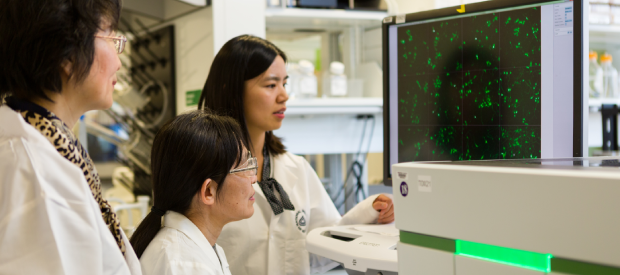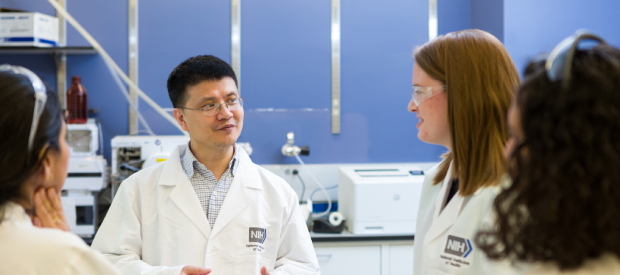Research
The work we support or carry out in our labs opens up bottlenecks in translational research to speed health solutions.
Research at NCATS
Our research and resources address long-standing challenges that slow the development of new health solutions. We overcome these challenges by developing solutions that aid many translational research efforts.
Our Impact
See how our work leads to progress in treatment and research methods.
Work With NCATS

We offer an array of funding programs and in-kind support services to help researchers translate scientific knowledge into health solutions. Learn more about all the ways you can work with us to advance translational science.
Research Resources
Preclinical Toolbox
Explore a collection of resources for preclinical resources.
Clinical Toolbox
Explore a collection of resources for clinical applications.
We offer a range of preclinical and clinical research tools that help with clinical trial design, patient recruitment and regulatory compliance.
Training & Education
Discover our programs, activities and resources available to further your knowledge of and advance your career in translational science.
Training at NCATS
See training opportunities at NCATS.
Training at Partner Institutions
Learn about training opportunities available through our partners.
About Translational Science
Learn the fundamentals of translational science.
Educational Resources
See our educational resources.
Funding
Through funding and collaboration, we support research that aims to deliver more treatments to all people more quickly.
Recent Funding Opportunities
Alliances & Licensing

Our Strategic Alliances team helps industry and academia interact and partner with NCATS labs.


